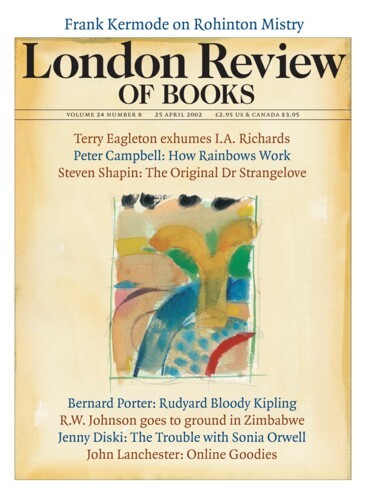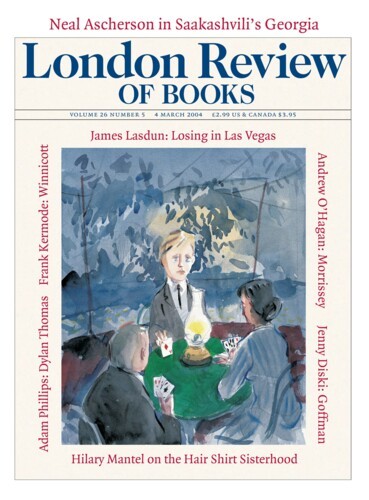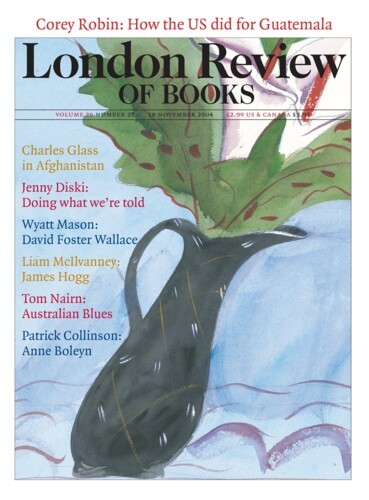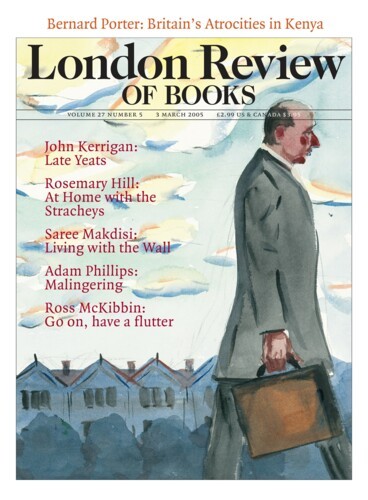So Much to Hate: Rudyard Bloody Kipling
Bernard Porter, 25 April 2002
Kipling is an easy man to dislike. He wasn’t much loved in his own time, apparently, even by people – schoolmates, for example, and neighbours in Vermont – with whom he thought he was rubbing along well. In his later years he lost many of the friends he had, except the most right-wing ones and King George V, who found Kipling the only literary figure he could get on with at...




